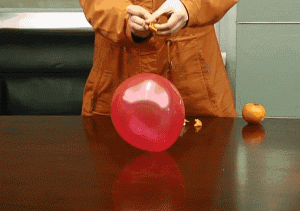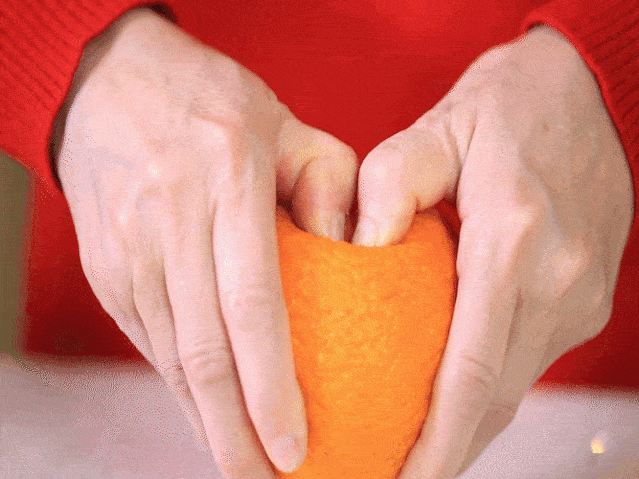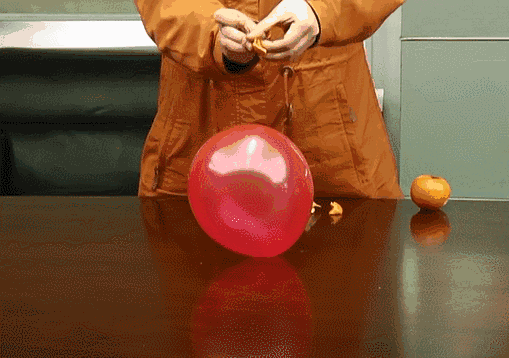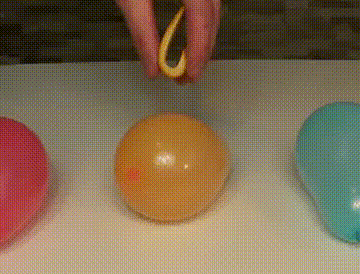
It’s the ripening season of oranges again
Citrus lovers’ spring is here
You can eat it unscrupulously
but
Eating oranges is also a safety hazard

We all know that balloons can’t meet open flames, but did you know that oranges can also detonate balloons? When sweet orange juice meets balloons, unexpected sparks can be collided

Everyone must be surprised
Oranges are fruits. Why can balloons explode? The culprit is
Aromatic hydrocarbon compounds
The peel of citrus fruits contains aromatic hydrocarbon compounds, which are highly soluble to rubber and can dissolve rubber instantly. When the balloon is full and filled with a large amount of gas, it itself bears a lot of pressure. If one part is corroded and thinned or ruptured, the internal pressure will be uneven and an explosion will occur.
Seeing this, someone might ask, besides oranges, can oranges, grapefruits, lemons, kumquats, etc. also detonate balloons?
The answer is yes
Oranges, grapefruits, etc. are all citrus fruits. They all contain aromatic hydrocarbons. When the juice in the peel meets a balloon, it can detonate it.

Of course, the explosion of a balloon is closely related to the amount of juice, the thickness of the rubber, and the inflation of the balloon. The explosion does not occur as long as the liquid splashes on the surface of the balloon. In fact, it depends on whether the critical point of the balloon explosion is reached. If the balloon is small and the rubber is thicker, it may explode after encountering more juice.
Tips
1. When peeling citrus fruits, do not touch the balloons and stay away from the children holding the balloons.
2. After touching foods containing aromatic hydrocarbon compounds, be sure to wash your hands.
3. When children eat citrus, do not play with balloons at the same time, so as not to cause harm.
Comments